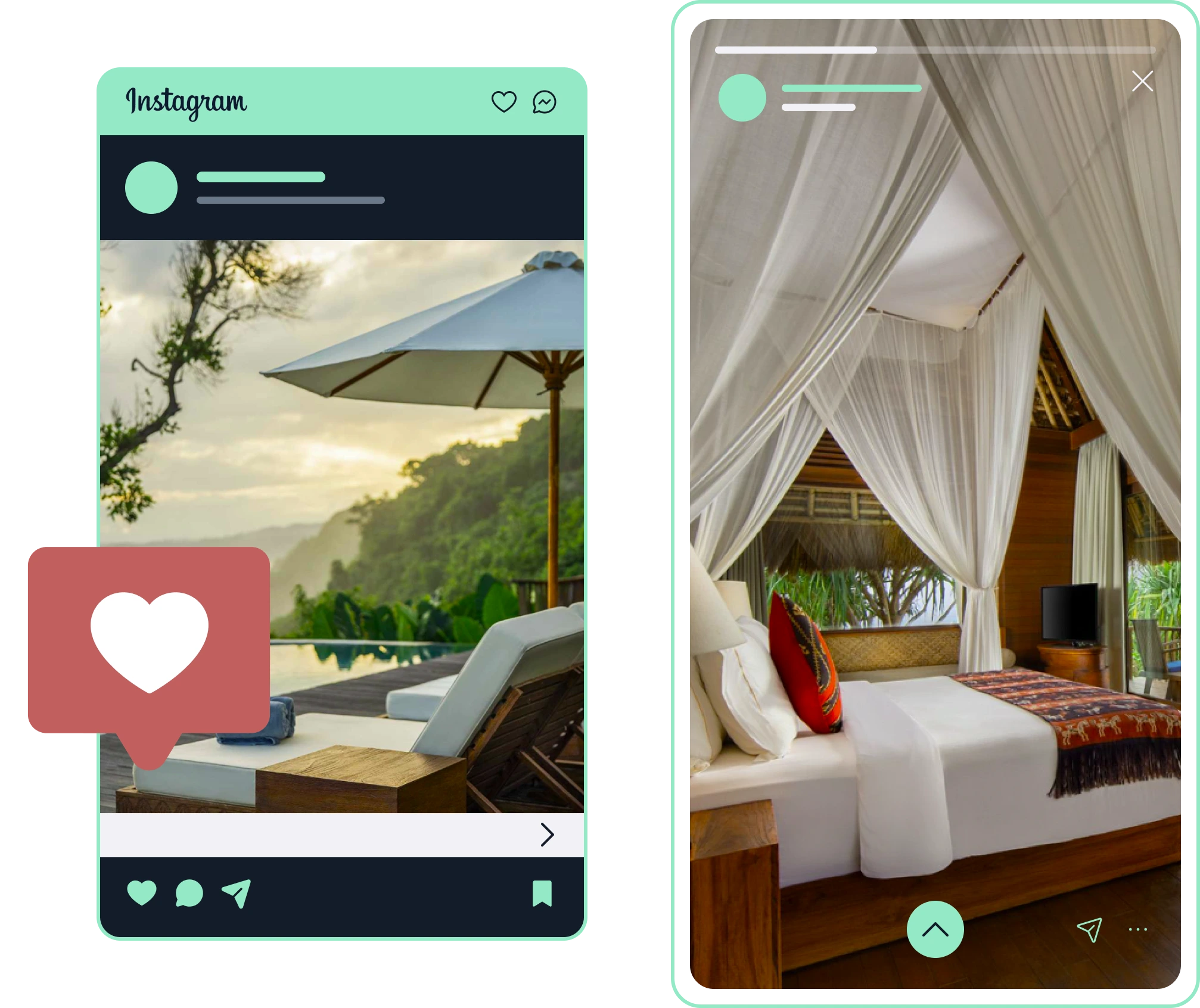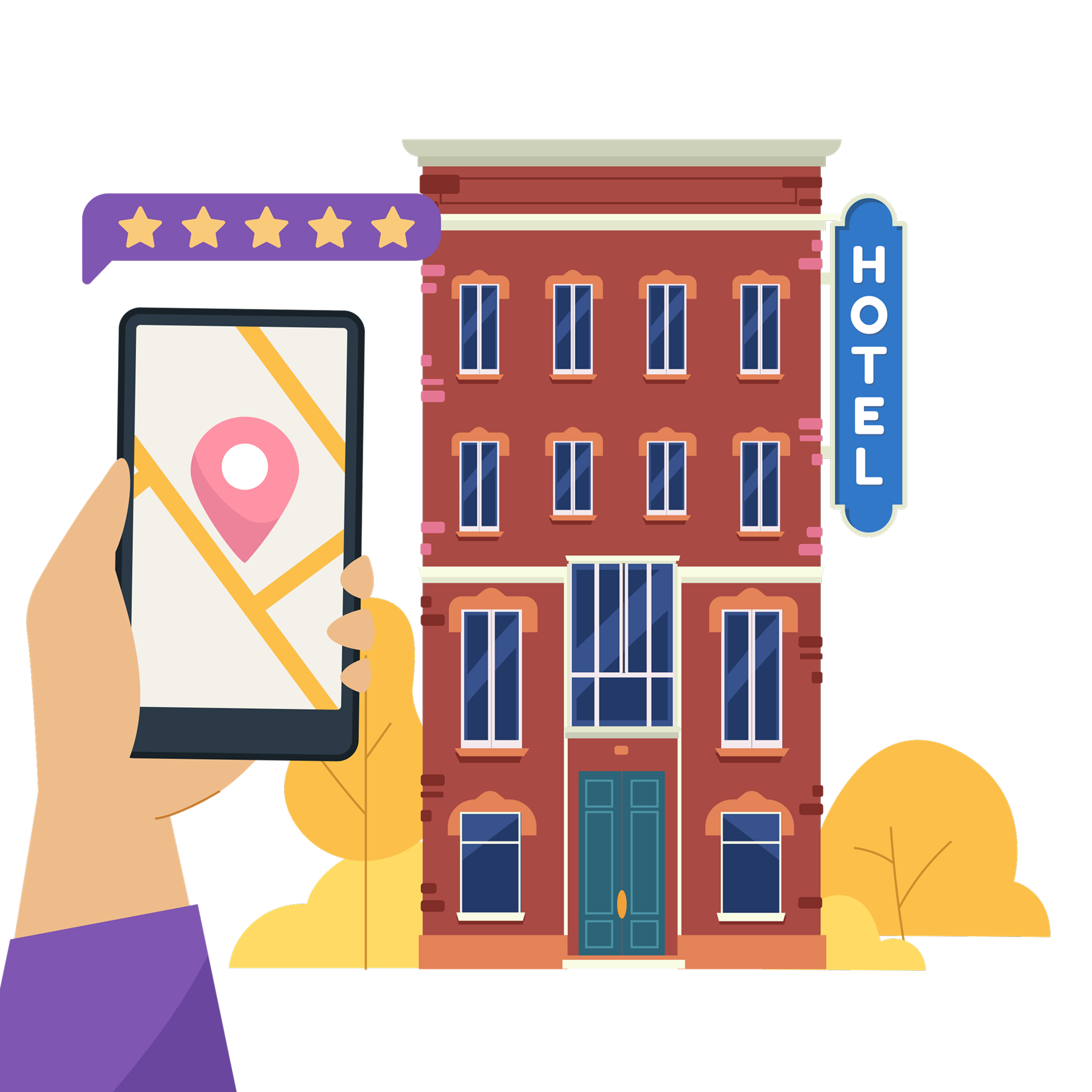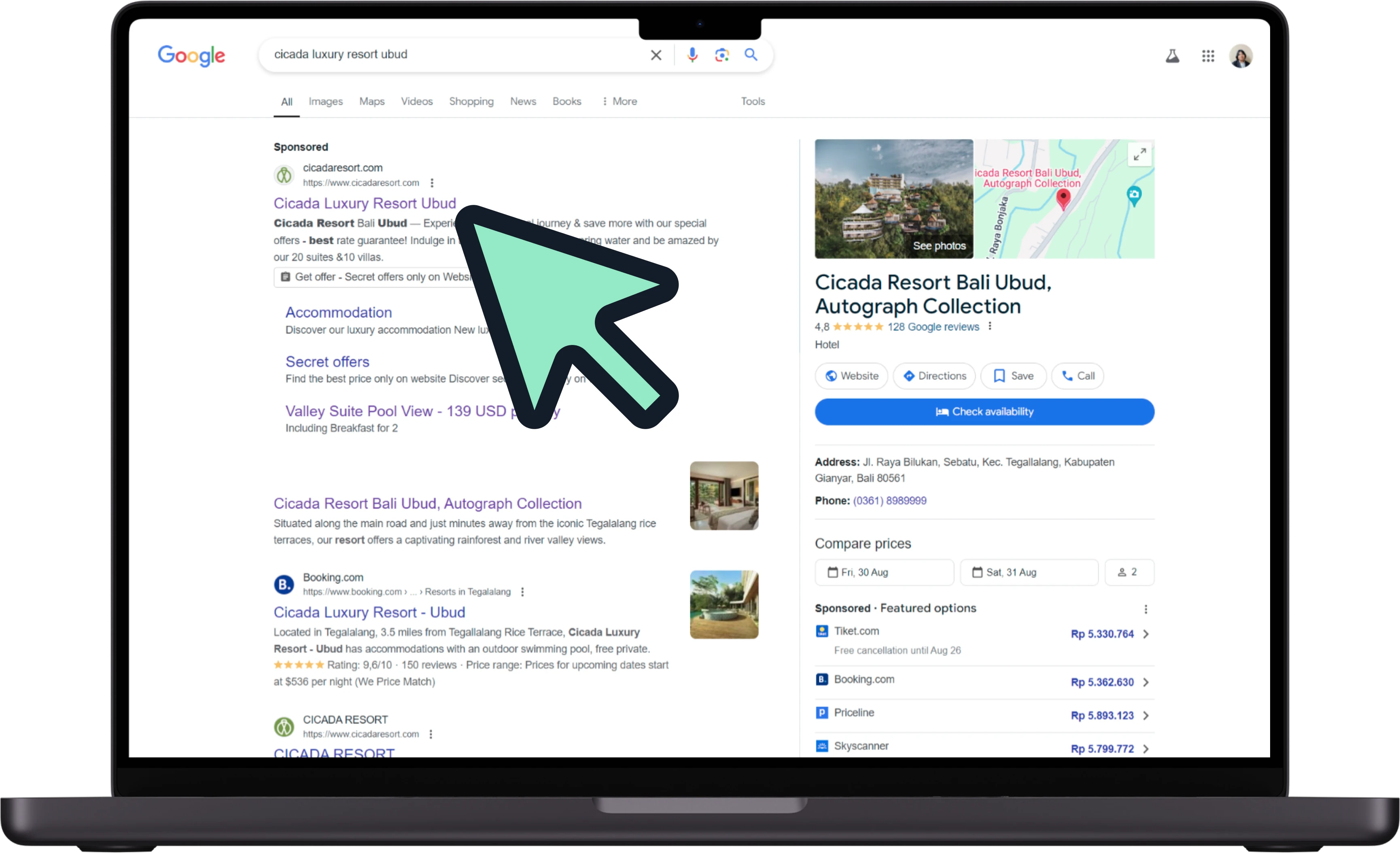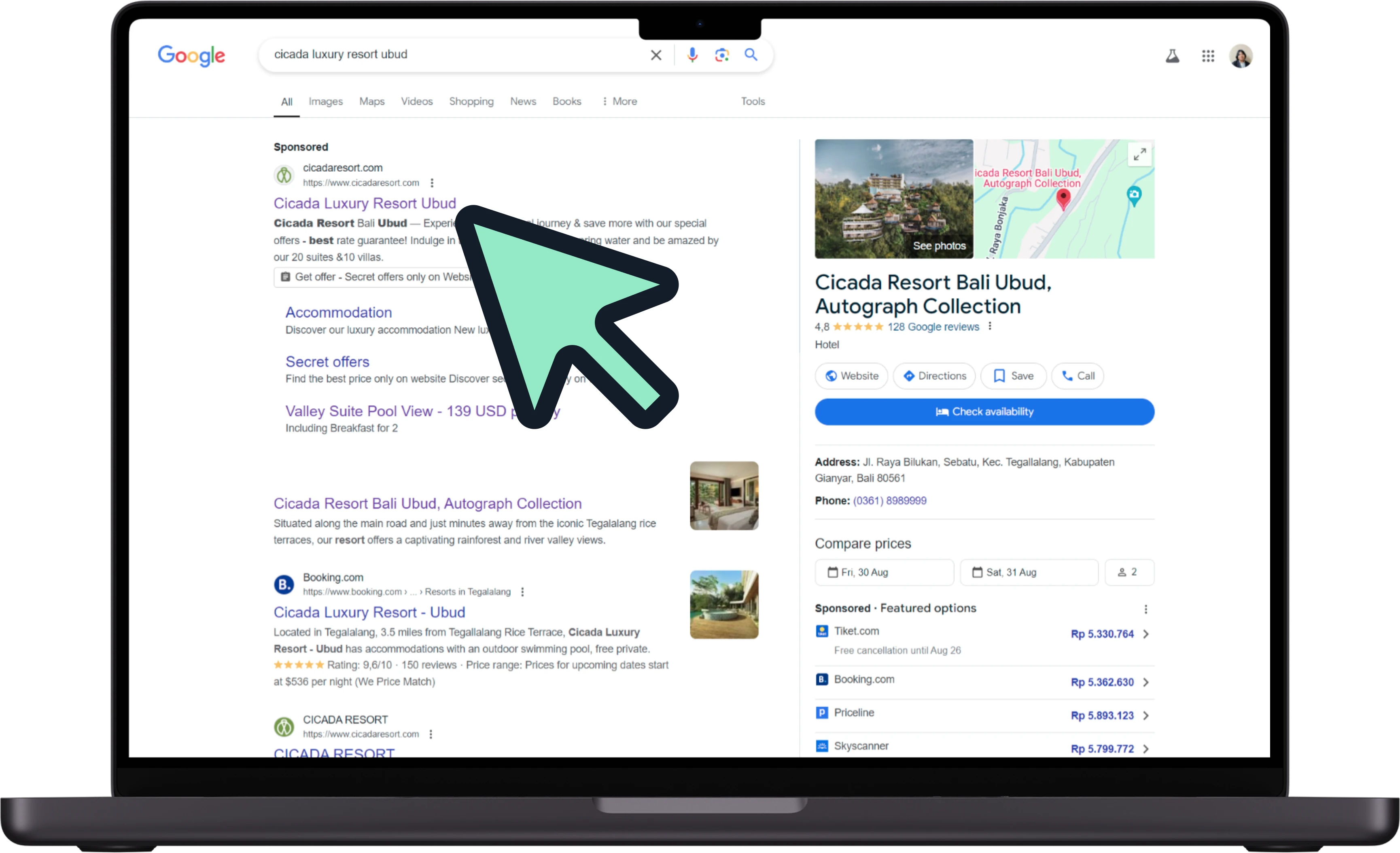Hospitality Management Solutions
Service-first, Technology-powered. Our approach blends hands-on service with advanced technology to create a truly collaborative partnership. We guide you every step of the way, using our platform to enhance your marketing strategy and drive revenue, ensuring you stay ahead in a competitive market.


Property Sales & Marketing
What Is Property Sales & Marketing and
How Does It Work?
At Mindimedia, we help properties boost sales and marketing through data-driven strategies and tailored campaigns. Our team creates engaging content, optimizes social media, and runs targeted ads to attract qualified leads. We use tools like SEO, virtual tours, and retargeting to drive conversions and enhance brand visibility. By fine-tuning every aspect of your marketing, we help increase engagement, build lasting relationships, and ultimately drive property sales.

5 Main Goals of Property and Sales Marketing
Attract Guests
Showcase the property to potential travelers and spark their interest.
Build Brand Recognition
Create a memorable and trusted image of the hotel or resort.
Drive Direct Bookings
Increase room reservations, event hosting, and package sales.
Enhance Guest Loyalty
Foster repeat business through positive experiences and loyalty programs.
Maximize Revenue
Implement strategies that boost overall sales and profitability.
Key Methods for better Property and Sales Marketing
Digital Presence
Utilize SEO, a user-friendly website, and active social media campaigns for wider visibility.
Visual Content
Showcase the property with high-quality photos, videos, and virtual tours.
Guest Testimonials
Highlight positive reviews to build trust and encourage bookings.
Promotions & Loyalty Programs
Offer discounts, seasonal deals, and membership rewards for repeat guests.
Direct Sales Efforts
Engage corporate clients and promote event spaces through outreach.
CRM & Data Analytics
Use customer data for targeted marketing and follow-ups to boost engagement and conversions.
E-commerce Management
What Is E-commerce Management and
How Does It Work?
E-commerce management in the hospitality industry refers to the process of overseeing and optimizing online sales and marketing strategies to drive bookings and revenue for hotels, resorts, and other hospitality businesses. It involves managing digital platforms, distribution channels, and online booking systems to effectively reach and convert potential customers. The goal is to enhance the guest experience, streamline operations, and maximize profitability through online channels.

Key Aspect of E-commerce Management
Online Booking Systems
Managing and optimizing the hotel’s website or third-party platforms (like Online Travel Agents) to ensure seamless and easy booking experiences for guests.
Channel Management
Ensuring that room availability and rates are consistent across various online platforms, including OTAs and direct channels (hotel website). This prevents overbooking and maximizes reach.
Digital Marketing & Advertising
Utilizing online marketing techniques such as search engine optimization (SEO), pay-per-click (PPC) advertising, email marketing, and social media to attract potential customers and drive bookings.
Pricing and Revenue Management
Using dynamic pricing tools to adjust room rates based on demand, competition, and seasonality to maximize revenue.
Customer Relationship Management (CRM)
Collecting and analyzing customer data to personalize offers, enhance loyalty programs, and improve customer service through targeted communications.
User Experience (UX) Optimization
Ensuring the hotel's website and booking interface are user-friendly, mobile-responsive, and easy to navigate, improving conversion rates.
Website Integration Management
What Is Website Integration Management and
How Does It Work?
Website integration management in the hospitality industry involves coordinating and incorporating various digital tools, software, and systems into a hotel’s website to create a seamless, functional, and efficient online experience. This process ensures that the hotel’s website operates as a comprehensive platform that supports bookings, customer service, marketing, and operational tasks. Effective integration helps streamline operations, enhance user experience, and boost overall performance.

Key Components of Website Integration Management in Hospitality
Choose Influencers that Aligned with Brand Values
Ensuring alignment with the influencer’s niche, tone, and audience increases the likelihood of genuine, effective engagement.
Utilize Micro- and Nano-Influencers
Smaller influencers often have highly engaged followings and provide cost-effective ways to reach targeted audiences.
Embrace Creative Collaborations
Let influencers bring their unique creativity into campaigns, as their authenticity and style are what their followers connect with.
Market Analysis and Strategy Development
What Is Market Analysis and Strategy Development and
How Does It Work?
Market Analysis and Strategy Development in hospitality management involves assessing the current market conditions and using insights to create effective strategies that attract and retain guests while maximizing revenue. This process is essential for understanding the competitive landscape, guest preferences, and industry trends, allowing hospitality businesses to make data-driven decisions and position themselves strategically.

Market Analysis
Competitor Analysis
Evaluating what other hotels, resorts, or accommodations in the area offer, including pricing, amenities, marketing strategies, and guest reviews. This helps identify competitive advantages and areas for improvement.
Target Audience Research
Identifying and analyzing the demographics, behavior, and preferences of potential and current guests to tailor services and marketing campaigns effectively.
Industry Trends
Keeping up with trends such as sustainable practices, digital innovations, and new travel habits (e.g., "workcations" or wellness tourism) to adapt offerings and stay relevant.
SWOT Analysis
Assessing the strengths, weaknesses, opportunities, and threats related to the property’s position in the market.
Strategy Development
Positioning Strategy
Developing a unique value proposition that highlights what sets the property apart from competitors, such as luxury experiences, eco-friendly practices, or exceptional customer service.
Pricing Strategy
Establishing a pricing model based on market data, competitor rates, and demand trends, often involving dynamic pricing to adjust rates in real-time for maximum profitability.
Marketing and Promotion Plans
Creating campaigns that align with market insights, including seasonal promotions, loyalty programs, and targeted digital ads.
Partnership and Collaboration Strategy
Forming alliances with local businesses, such as restaurants, tour operators, or event venues, to enhance guest offerings and create package deals.
Distribution Strategy
Determining the optimal mix of direct bookings and third-party platforms (OTAs) to reach a broader audience while balancing commission costs.
Customer Experience Enhancements
Using guest feedback and analysis to identify service improvements that align with market demands and increase satisfaction.
Still not sure to choose us?
See how we’ve brought our clients' visions to life! Check out our portfolio and see the results for yourself.
KOMINFO TDPSE registered no. 016992.01/DJAI.PSE/01/2025
©2026 Mindimedia. All Rights Reserved.

